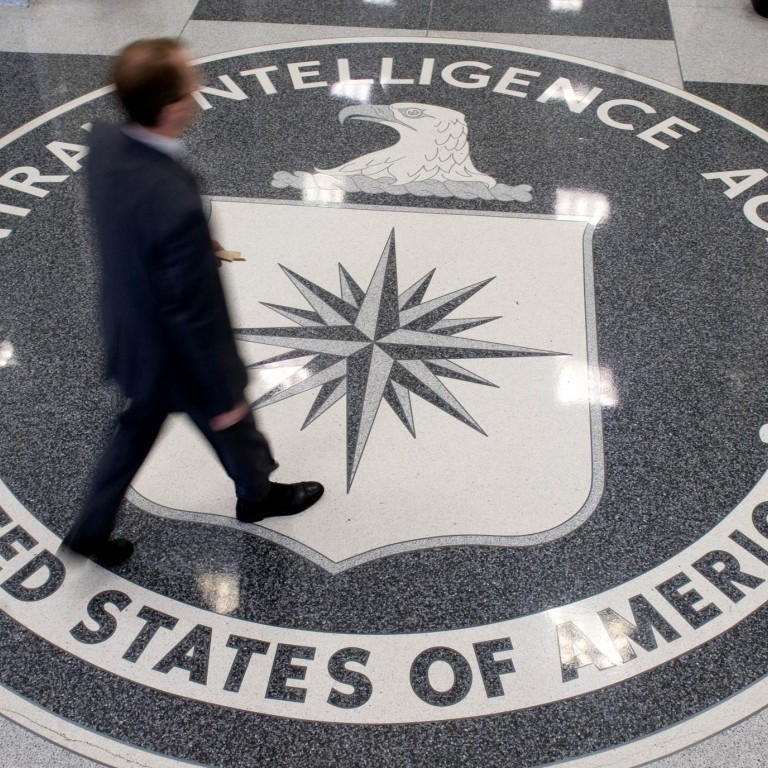
CIA paid private contractors millions to design and carry out torture programmes
Psychologists unleashed harsh techniques they helped design for the US on terrorism suspects - and their company was richly rewarded
The well-paid psychologists had a plan and a contract to make terrorists talk.
And when Khalid Sheikh Mohammed resisted, a CIA officer confided in 2003 that one of the psychologists promised he was "going to go to school on this guy", according to the US Senate Intelligence Committee report on the torture of foreign terrorism suspects.
Private contractors James E. Mitchell and Bruce Jessen then unleashed the harsh interrogation techniques they helped design, and for which their company has so far been paid more than US$80 million out of CIA coffers.
The devising of coercive interrogation tools such as waterboarding, slapping and sleep deprivation proved amazingly lucrative to Mitchell and Jessen even as they triggered alarms among intelligence professionals over the brutal handling of detainees such as the suspected mastermind of 9/11, the report shows. "Although these guys believe that their way is the only way, there should be an effort to define roles and responsibilities before their arrogance and narcissism evolve into unproductive conflict in the field," a CIA medical professional warned in a June 16, 2003, email.
The two psychologists are among the few identifiable major players whose actions are spotlighted in the report made public on Tuesday. That could put them at the centre of a growing call for legal consequences.
"If the allegations are true, their behaviour was a clear violation of the profession's ethical standards, clear violations of human rights, and probably violations of US and international laws," Rhea Farberman, the spokeswoman for the American Psychological Association. "They should be held accountable."
"It's a bunch of hooey," Mitchell said from his home in Florida when asked for his response to the Senate Intelligence Committee's findings. "Some of the things are just plain not true."
In a brief telephone interview, Mitchell declined to specify what he considered wrong in the report, citing a non-disclosure agreement with the government.
But he suggested political bias was behind the report, which was put together by the committee's Democratic majority and which he said sought to "smear" those involved in the programme.
Jessen, a Washington state resident, could not be reached for comment.
Formerly employed at the Air Force's tough Survival, Evasion, Resistance and Escape School in Washington state, neither Mitchell nor Jessen had experience as an interrogator or as an expert in terrorism. Both, though, saw a patriotic opportunity after the 9/11 terror attacks. Mitchell and Jessen are dubbed with code names in the study.
"The CIA did not seek out (Mitchell and Jessen) after a decision was made to use coercive interrogation techniques," the Senate Intelligence Committee report had noted.
"Rather, (Mitchell and Jessen) played a role in convincing the CIA to adopt such a policy."
The psychologists' expertise with waterboarding, a 2004 CIA Inspector General report previously stated, "was probably misrepresented at the time", as their prior work with US airmen at the air force school was "almost irrelevant" to the interrogation of suspected terrorists.
Mitchell and Jessen nonetheless flourished as they hired former CIA officers, the new report shows.
They travelled the world, consulted with foreign intelligence operatives and briefed the likes of then-Secretary of State Condoleezza Rice.
Their company provided interrogators, psychologists, debriefers and security personnel at CIA detention sites overseas.
They ran a project that they dubbed the "Terrorist Think Tank", designed to understand the terrorist "mind set".
All the while, they earned millions. By 2006, one year after Mitchell, Jessen & Associates was founded, the value of their base contract was "in excess of US$180 million", Senate investigators found. All told, the CIA has spent US$81 million on the company's contract.
A CIA medical doctor warned in a previously undisclosed internal agency review about a "conflict of interest" that was "nowhere more graphic" than in paying the two contract psychologists to simultaneously apply an interrogation technique, judge its effectiveness and recommend its continued use.

